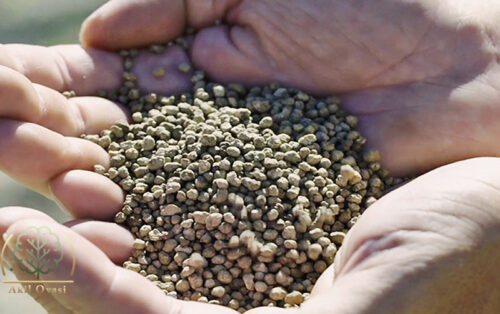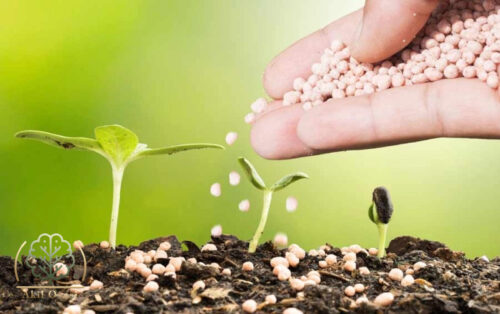Nitrogen-sulfur
Nitrogen-sulfur fertilizer is a type of chemical fertilizer that includes nitrogen and sulfur as essential nutrients for plants. Nitrogen is one of the key elements necessary for healthy plant growth and is a fundamental component of proteins and amino acids. Sulfur is also essential for chlorophyll production and some amino compounds, and it helps enhance the flavor and aroma of crops.
Features:
- Simultaneous Presence of Nitrogen and Sulfur: This fertilizer provides both nitrogen and sulfur to plants at the same time, making it especially beneficial for soils lacking these elements.
- Improvement of Soil Fertility: It helps improve soil structure and increases the ability to retain water.
- Enhanced Plant Growth: Nitrogen supports vegetative growth and leaf production, while sulfur improves product quality and resistance to diseases.

Benefits of Nitrogen-Sulfur Fertilizers
- Balanced Nutrition: They supply essential nutrients that work synergistically. Adequate nitrogen promotes growth, while sulfur contributes to protein synthesis and enzyme function.
- Soil Health: By improving soil structure and nutrient availability, these fertilizers can enhance overall soil health and productivity.
- Crop Quality: Sulfur is essential for the synthesis of certain amino acids and vitamins, thus improving the quality and nutritional value of the produce.
- Disease Resistance: Plants with adequate sulfur levels tend to have improved resistance to diseases and pest infestations.

Applications:
- Crop Production
- Cereals and Grains: Essential for boosting the growth of grains like wheat, rice, and barley. Nitrogen promotes vegetative growth, while sulfur enhances grain quality and protein content.
- Vegetables: Crucial for leafy greens (e.g., spinach, lettuce) and other vegetables. Nitrogen encourages lush foliage, while sulfur improves flavor and nutritional value.
- Fruits: Supports fruit development in crops like apples, citrus, and stone fruits, enhancing both yield and quality.
- Forage and Pasture
- Used in grasslands to promote healthy growth and improve forage quality for livestock, particularly in nutrient-poor soils.
- Ornamental Plants
- Beneficial for garden beds, shrubs, and flowering plants, enhancing both foliage growth and flowering potential.
- Garden and Landscape Maintenance
- Applied to home gardens to improve soil fertility and plant health, especially in vegetable gardens and flower beds.
- Soil Remediation
- Used in certain environmental restoration practices to address nutrient deficiencies in degraded soils, promoting recovery and fertility.
- Integrated Pest Management (IPM)
- Improved plant health through balanced nutrition can contribute to pest resistance, reducing the need for chemical pesticides.
- Fertigation in Irrigation Systems
- Nitrogen-sulfur fertilizers can be dissolved in irrigation water, allowing for efficient nutrient delivery directly to the root zone of crops.


